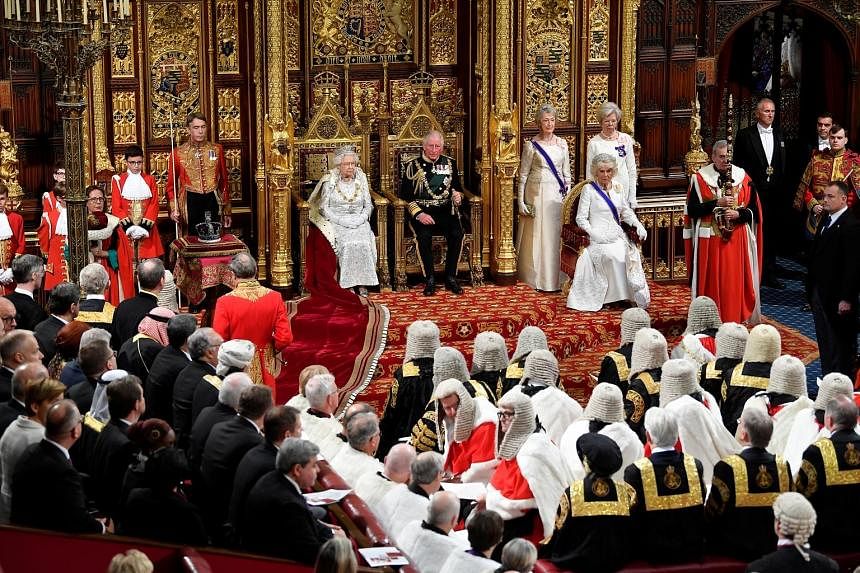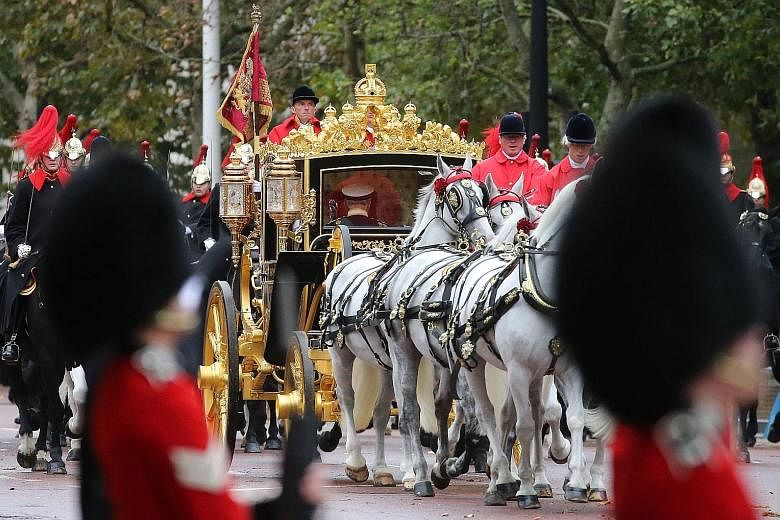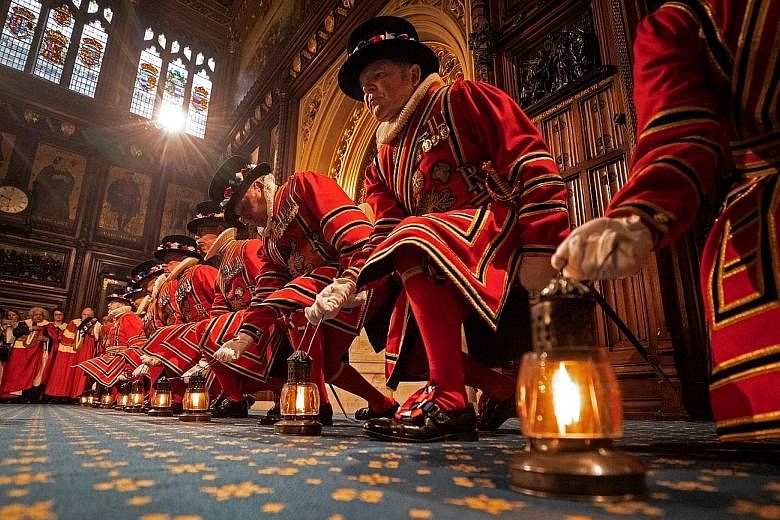LONDON • British Prime Minister Boris Johnson has set out a legislative plan that he can only hope to deliver if he wins a general election, promising a focus on domestic issues if he can "get Brexit done".
The Queen's Speech yesterday contained 26 Bills, seven of them related to Brexit, but everything hangs on the first one: the European Union (Withdrawal Agreement) Bill, which would allow the UK to leave the EU with a deal - if one is agreed.
In the event that Mr Johnson and the EU can reach an agreement before the end of the month, Mr Johnson will try to rush that Bill through Parliament. If not, he may try to take Britain out of the bloc without a deal, or he might be forced to delay the divorce.
The issue for Mr Johnson is that he is so far short of a majority that he cannot pass any controversial legislation without an election, which the opposition parties will not let him hold until he delays Brexit or agrees a deal with the EU.
In that context, the speech, delivered to both Houses of Parliament by Queen Elizabeth II in the House of Lords, was a preview of the ground on which Mr Johnson would like to fight that election: health, crime and education.
"People are tired of stasis, gridlock and waiting for change," Mr Johnson wrote in an introduction to the speech.
"They don't want to wait for their streets to be safer. They don't want to wait for their schools to have the funding they need."
There were other measures to deal with Brexit, covering agriculture, fisheries, trade and immigration. A financial services Bill aims to maintain the UK's status as an investment centre.
The measures affecting business included: a Medicines and Medical Devices Bill, to simplify trials; prescribing a Pension Schemes Bill to make it easier for savers to keep track of different pots of money; moves to give the government more powers to scrutinise takeovers of companies with national security links; a crackdown on child abuse online; and putting a duty of care on technology firms.
The speech also contained lines clearly intended as voter-friendly talking points in an election: a law to let servers in restaurants keep all their tips; a nationwide roll-out of gigabit broadband; and an Animal Welfare Bill, banning the use of wild animals in circuses.
Another promise seeks to give Mr Johnson's Conservative Party an answer to the opposition Labour Party's eye-catching plan to take railways back into public ownership. The government will review how the trains work, with a pledge to simplify ticket structures and a new industry structure, Mr Johnson's office said in a briefing.
The rest of the week will see debate on these measures in Parliament, but the political focus will be on Mr Johnson's talks with the EU, and a summit of EU leaders starting this Thursday. The government wants Parliament to sit this Saturday, the first weekend sitting since the Falklands War in 1982, to discuss the outcome of that meeting.
The pageantry of the Queen's Speech began at 10am, when the Yeomen of the Guard, the royal bodyguards known as "Beefeaters", searched the cellars of Parliament. The tradition dates back to 1605, when Guy Fawkes attempted to blow up Parliament, and King James I with it.
The Queen then travelled in a gilded coach from Buckingham Palace to the Houses of Parliament, escorted by the Household Cavalry.
As the Queen arrived, the Union Flag of the UK was lowered and her Royal Standard raised over Parliament.
At 11.30am, Ms Sarah Clarke, the Queen's representative to Parliament - generally known by her official title of Black Rod - marched to the House of Commons, the Lower, elected Chamber.
She summoned politicians to hear the Queen, who was waiting in the House of Lords, the Upper, unelected Chamber. The door of the Commons was slammed in her face.
This ritual symbolises the independence of the Commons from the Crown: no British monarch has entered the Lower House since 1642, when King Charles I tried to arrest five members in the run-up to a civil war that ended with his execution in 1649.
BLOOMBERG













